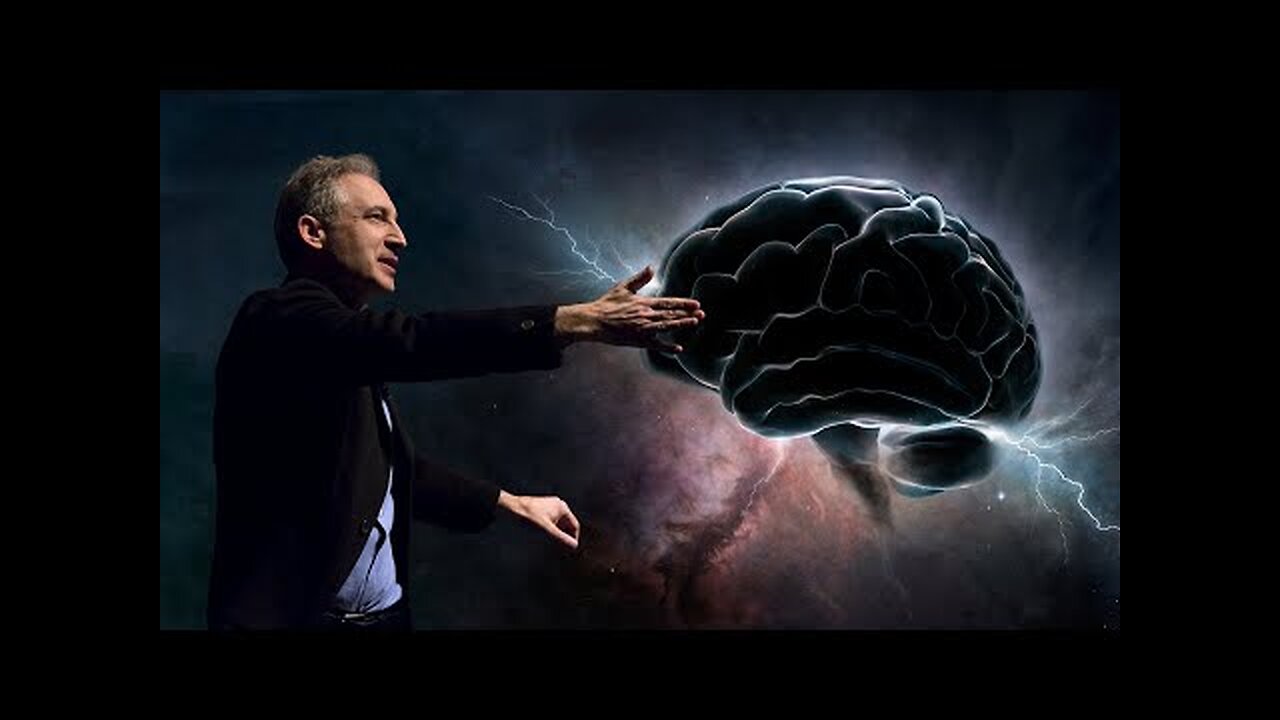Premium Only Content

The Bizarre Boltzmann Brain Hypothesis Explained by Brian Greene
The universe is stranger than we imagine. Over an extremely large but not infinite amount of time, by sheer chance, atoms in a void could spontaneously come together in such a way as to assemble a functioning human brain.
The American theoretical physicist, mathematician, and string theorist Brian Greene explains the Boltzmann Brain Hypothesis.
According to Brian Greene, there could be a brain floating in space that just happens to have the particle configuration exactly as your brain does. The probabilistic nature of quantum physics with the combination of virtually unlimited time can yield to such an outcome.
The Boltzmann brain argument suggests that it is more likely for a single brain to spontaneously and briefly form in a void (complete with a false memory of having existed in our universe) than it is for the universe to have come about as the result of a random fluctuation in a universe in thermal equilibrium.
The idea is named after the Austrian physicist Ludwig Boltzmann who, in 1896, published a theory that tried to account for the fact that humans find themselves in a universe that is not as chaotic as the budding field of thermodynamics seemed to predict. He offered several explanations, one of them being that the universe, even one that is fully random (or at thermal equilibrium), would spontaneously fluctuate to a more ordered (or low-entropy) state.
While the first law of thermodynamics states that energy can neither be created nor destroyed, but only altered in form, the second law of thermodynamics, says that the entropy of a closed system always increases. Since the universe that we know of is a closed system, we would expect the entropy to increase over time. This means that, given enough time, the most likely state of the universe is one where everything is in thermodynamic equilibrium, but we clearly don't exist in a universe of this type since, after all, there is order all around us in various forms, not the least of which is the fact that life exists.
Brian Greene thinks there can be pockets of order forming within the overall tendency toward disorder.
In case the idea of the Boltzmann turns out to be wrong, there is still a chance that indeed this reality we perceive is not actually real. A somewhat similar example to the Boltzmann brain paradox, is the simulation hypothesis which according to Dr. Greene is the most radical of them all.
-
 LIVE
LIVE
Tate Speech by Andrew Tate
1 hour agoEMERGENCY MEETING EPISODE 113 - THE NEXT STAGE
6,644 watching -

JULIE GREEN MINISTRIES
2 hours agoLIVE WITH JULIE
32.1K92 -
 LIVE
LIVE
LFA TV
13 hours agoLFA TV ALL DAY STREAM - MONDAY 8/11/25
13,351 watching -
 LIVE
LIVE
Chicks On The Right
2 hours agoMTG fighting w/Levin, Pritzker humiliated by Welker, Mamdani squeals like a girl, and psychotic libs
1,729 watching -
 LIVE
LIVE
The Bubba Army
2 days agoAlligator Alcatraz Closed?! - Bubba the Love Sponge® Show | 8/11/25
6,943 watching -
 29:03
29:03
DeVory Darkins
14 hours ago $6.40 earnedDemocrat Governors painfully HUMILIATED Trump drops BRUTAL WARNING for DC officials
7.03K53 -
 14:44
14:44
Preston Stewart
18 hours ago $1.15 earnedTrump's Cartel Crackdown
5.08K6 -
 1:05:58
1:05:58
Sarah Westall
15 hours agoForces Creating Massive Instability Worldwide: US, Ukraine, China, Israel, Colonel Douglas Macgregor
15.3K30 -
 LIVE
LIVE
BEK TV
1 hour agoTrent Loos in the Morning - 8/11/2025
87 watching -
 3:45:16
3:45:16
Badlands Media
1 day agoThe Narrative Ep. 34: The World Eater
111K41